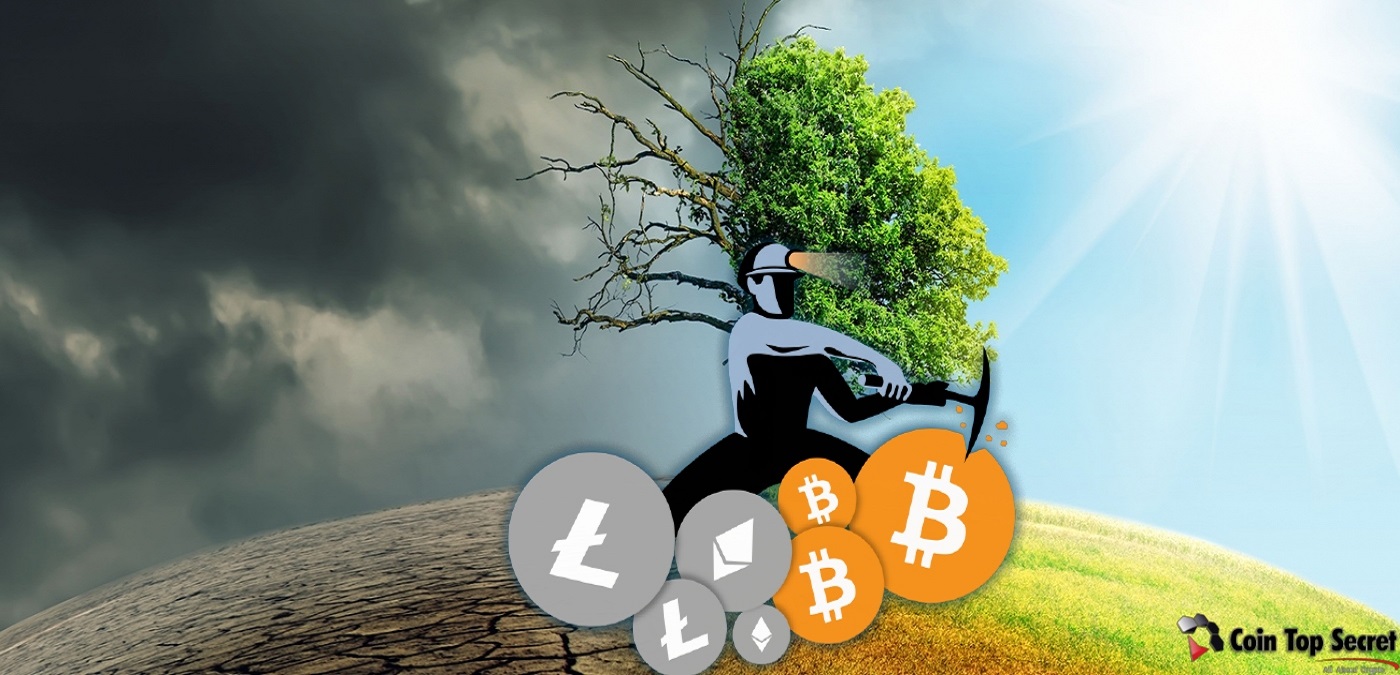Sweden proposed to ban mining in the European Union, sparking debates over environmental sustainability, industrial growth, and Europe’s green future. Discover how this controversial proposal could reshape the EU’s resource strategy.
Background of Sweden’s Proposal
Sweden, long celebrated for its pristine forests, innovative recycling systems, and strong commitment to sustainability, has taken a bold step that has captured global attention. The country has proposed a complete ban on mining activities within the European Union, aiming to reduce environmental degradation and push for a cleaner, greener future.
This proposal stems from Sweden’s deep-rooted environmental policies and the nation’s desire to lead Europe in achieving net-zero emissions. Mining, despite its economic benefits, has long been criticized for its impact on biodiversity, water contamination, and carbon emissions. Sweden’s government argues that the EU can no longer afford the ecological costs associated with traditional mineral extraction.
Historically, Sweden has balanced its industrial prowess—particularly in iron ore and steel production—with environmental responsibility. However, with the climate crisis intensifying, policymakers now believe that ending mining across the EU could accelerate Europe’s transition to renewable energy and circular economies.
Sweden’s Environmental Vision and EU Influence
Sweden’s environmental philosophy has always been ambitious. Its carbon tax, renewable energy targets, and green technology investments have made it a sustainability model for Europe. When Sweden proposes a policy, it often sparks continent-wide discussions — and this mining ban is no exception.
By urging the European Union to adopt stricter environmental regulations, Sweden aims to set a precedent for collective ecological responsibility. Officials argue that the EU should rely on recycled materials, innovation, and imports from ethically sourced regions, rather than continue destructive mining practices within its own borders.
However, this proposal also exposes a fundamental tension: while Europe wants to reduce emissions, it also requires massive quantities of critical minerals — such as lithium, cobalt, and rare earth elements — to power the green transition. This makes Sweden’s vision both inspiring and controversial.
Details of the Proposed Ban
The proposed mining ban covers both open-pit and underground mining operations across all EU member states. Key minerals such as copper, lithium, nickel, and rare earth elements are at the heart of the debate. The Swedish government argues that mining these resources often causes irreversible damage to natural ecosystems and contradicts Europe’s environmental promises.
Under the draft proposal, the EU would:
- Phase out new mining licenses by 2030.
- Gradually close existing operations by 2040.
- Invest heavily in recycling technologies and circular economy infrastructure.
- Establish stricter import regulations for non-EU mined minerals.
The plan, though radical, is designed to shift Europe’s dependence from extraction to innovation — a vision aligned with the EU’s Green Deal objectives.
Why Sweden Wants to Ban Mining in the EU
Sweden’s motivations are multifaceted, blending environmental idealism, political momentum, and long-term economic foresight.
Environmental Concerns and Sustainability Goals
Mining is among the most polluting industries globally, often resulting in soil erosion, deforestation, and water pollution. For Sweden, banning mining aligns with its national goals to preserve biodiversity and achieve climate neutrality by 2045.
Furthermore, by pushing for a continental ban, Sweden hopes to reduce cross-border pollution and hold the EU accountable for its sustainability claims. This move would also encourage investment in urban mining, where valuable metals are recovered from electronic waste.
Public Opinion and Political Support in Sweden
Surveys indicate that over 60% of Swedes support stricter environmental protections, even at the cost of economic slowdown. Green and left-leaning parties have rallied behind the proposal, calling it a “historic opportunity” to redefine Europe’s environmental priorities.
However, industrial groups and opposition leaders warn that the proposal could threaten thousands of jobs and undermine Europe’s autonomy in sourcing key materials.
The European Union’s Response
Reactions across Europe have been polarized and politically charged.
Supporters of the Proposal
Countries such as Germany, Denmark, and the Netherlands have expressed cautious support, emphasizing the moral and environmental urgency of the plan. Several European Parliament members argue that reducing mining could accelerate innovation in recycling and clean technology.
Opponents of the Proposal
On the other hand, Finland, Poland, and Spain — nations with strong mining sectors — have voiced strong opposition. They argue that banning mining could deepen Europe’s dependency on imports from countries with weaker labor and environmental protections, such as China or the Democratic Republic of Congo.
Industry associations also warn that the proposal could jeopardize the EU’s technological independence, especially in renewable energy and electric vehicle production.
Economic Implications Across Europe
The economic shockwaves from Sweden’s proposal are profound. Mining has long been an integral part of several EU economies, providing raw materials for construction, electronics, and renewable energy infrastructure. If the ban were to pass, Europe’s industrial supply chains could face a significant realignment.
Impact on Employment and Regional Economies
Mining directly employs over 350,000 people across the European Union, with indirect employment reaching over one million. Regions such as Lapland (Finland), Andalusia (Spain), and Silesia (Poland) could face devastating job losses if the ban is enforced.
Local economies built around mining communities would likely experience massive displacement and social instability, unless alternative industries are developed. Sweden’s plan includes EU-funded retraining programs for miners, aiming to transition workers toward green technology sectors, including recycling and renewable energy infrastructure.
Impact on the Renewable Energy Sector
Ironically, the ban could hinder the European Green Transition. The production of electric vehicles, wind turbines, and solar panels relies heavily on metals like lithium, cobalt, and nickel — all of which come from mining. Without domestic sources, the EU would need to import these minerals, often from regions where environmental and labor standards are far weaker.
Analysts warn that this could increase Europe’s dependency on external suppliers, particularly China and Africa, potentially undermining the EU’s strategic autonomy in green manufacturing.
Mining-Dependent Economies in Europe
- Poland: A key coal and copper producer, Poland fears that a blanket mining ban would devastate its industrial sector.
- Finland: With one of Europe’s richest deposits of nickel and cobalt, Finland argues that sustainable mining can coexist with environmental protection.
- Spain: Andalusia’s copper and lithium mines are vital for its renewable energy projects, and local officials have already called the ban “economically reckless.”
These economic realities highlight a core tension — how can Europe balance environmental leadership with industrial resilience?
Legal and Policy Pathways
Enacting an EU-wide mining ban is not as simple as passing a national law. It would require navigating a complex network of EU treaties, environmental directives, and member state sovereignty.
EU Environmental Directives and Treaty Implications
Under the Treaty on the Functioning of the European Union (TFEU), natural resource management largely remains under national jurisdiction. Therefore, for the EU to impose such a sweeping ban, it would need unanimous consent from all 27 member states — an almost impossible feat given the diversity of economic interests.
However, Sweden’s proposal may still influence the EU Green Deal framework by pushing for tighter sustainability regulations, stricter environmental impact assessments, and incentives for circular economy practices.
Legal experts suggest the EU could implement “soft bans”, restricting new mining licenses or limiting operations in ecologically sensitive zones without outright prohibiting mining altogether.
Global Reactions and Industry Pushback
The ripple effects of Sweden’s proposal have extended beyond Europe.
Reactions from Global Mining Companies
Major mining corporations, such as Glencore and Rio Tinto, have warned that a European mining ban could disrupt global mineral supply chains, drive up prices, and increase competition for limited resources elsewhere. Some companies are already exploring relocation options in non-EU countries like Norway, Turkey, and Greenland.
Responses from Non-EU Nations
- China has cautiously welcomed the idea, viewing it as an opportunity to increase its dominance in global mineral exports.
- The United States, however, expressed concern that Europe might become too reliant on foreign supply chains, undermining Western strategic cooperation.
- African nations producing key minerals, such as Zambia and the DRC, see the proposal as a chance to strengthen export partnerships with the EU, though it raises new debates about resource exploitation ethics.
These reactions underline how a single proposal from Sweden could reshape global trade patterns and redefine supply chain geopolitics.
The Green Transition vs. Resource Dependency
The debate over Sweden’s proposal exposes a deep paradox at the heart of the green transition: Europe wants to achieve sustainability without compromising its access to essential resources.
To build millions of electric vehicles and renewable energy systems, the EU needs vast quantities of minerals — yet the act of extracting them is inherently unsustainable. Sweden’s plan challenges the bloc to rethink its model for growth and environmental responsibility.
Alternatives to Mining: Recycling and Circular Economy
One solution lies in the circular economy, where waste materials are reprocessed into valuable resources. The EU already recycles around 17% of its raw materials, but experts argue this could increase to over 40% with better technology and investment.
Innovations such as urban mining, where rare metals are extracted from old electronics, and advanced material recovery plants, could significantly reduce Europe’s dependency on traditional mining. Sweden hopes this proposal will accelerate innovation in these fields, transforming Europe from a resource extractor into a leader in sustainable material reuse.
What Comes Next for Europe’s Mining Policy?
The proposal is now under review by EU parliamentary committees and is expected to be a central topic at the next European Council Summit. Even if a full ban is unlikely, the debate is already pushing policymakers to strengthen environmental laws and sustainability targets.
Experts predict the EU may opt for a compromise solution, such as:
- Stricter environmental regulations on mining sites.
- Gradual phase-out of the most polluting operations.
- A “Green Mining Certification System” to reward sustainable practices.
Whether or not the proposal passes, Sweden has already achieved one thing — it has forced Europe to confront the environmental cost of its resource hunger.
FAQs About Sweden’s Proposed EU Mining Ban
1. What exactly does Sweden’s mining ban proposal include?
Sweden’s proposal calls for a phased ban on new and existing mining operations within the European Union, focusing on sustainability and environmental protection.
2. Why does Sweden want to stop mining in the EU?
The primary goal is to reduce environmental damage, protect biodiversity, and accelerate Europe’s shift toward a circular economy and carbon neutrality.
3. How will this affect Europe’s green transition?
The ban could slow renewable energy projects initially due to material shortages but might also drive innovation in recycling and material recovery.
4. What are the economic risks of banning mining?
Job losses, increased import dependency, and potential slowdowns in industrial sectors reliant on minerals are among the top risks.
5. Could the EU actually enforce such a ban?
It’s legally complex and politically challenging. A full ban would require unanimous member-state approval, making partial measures more likely.
6. Are there alternatives to traditional mining?
Yes. Recycling metals from electronic waste, developing synthetic materials, and expanding circular economy models can significantly reduce mining needs.
Conclusion
Sweden’s bold proposal to ban mining in the European Union represents a defining moment for Europe’s environmental and economic future. It raises tough questions about how societies balance sustainability, self-sufficiency, and progress.
While the ban may never fully materialize, its influence is undeniable — sparking vital conversations across the EU about resource ethics, industrial reform, and the true meaning of green growth.
Europe now stands at a crossroads: continue digging for the future, or start building it sustainably.
[hurrytimer id=”13685″]
